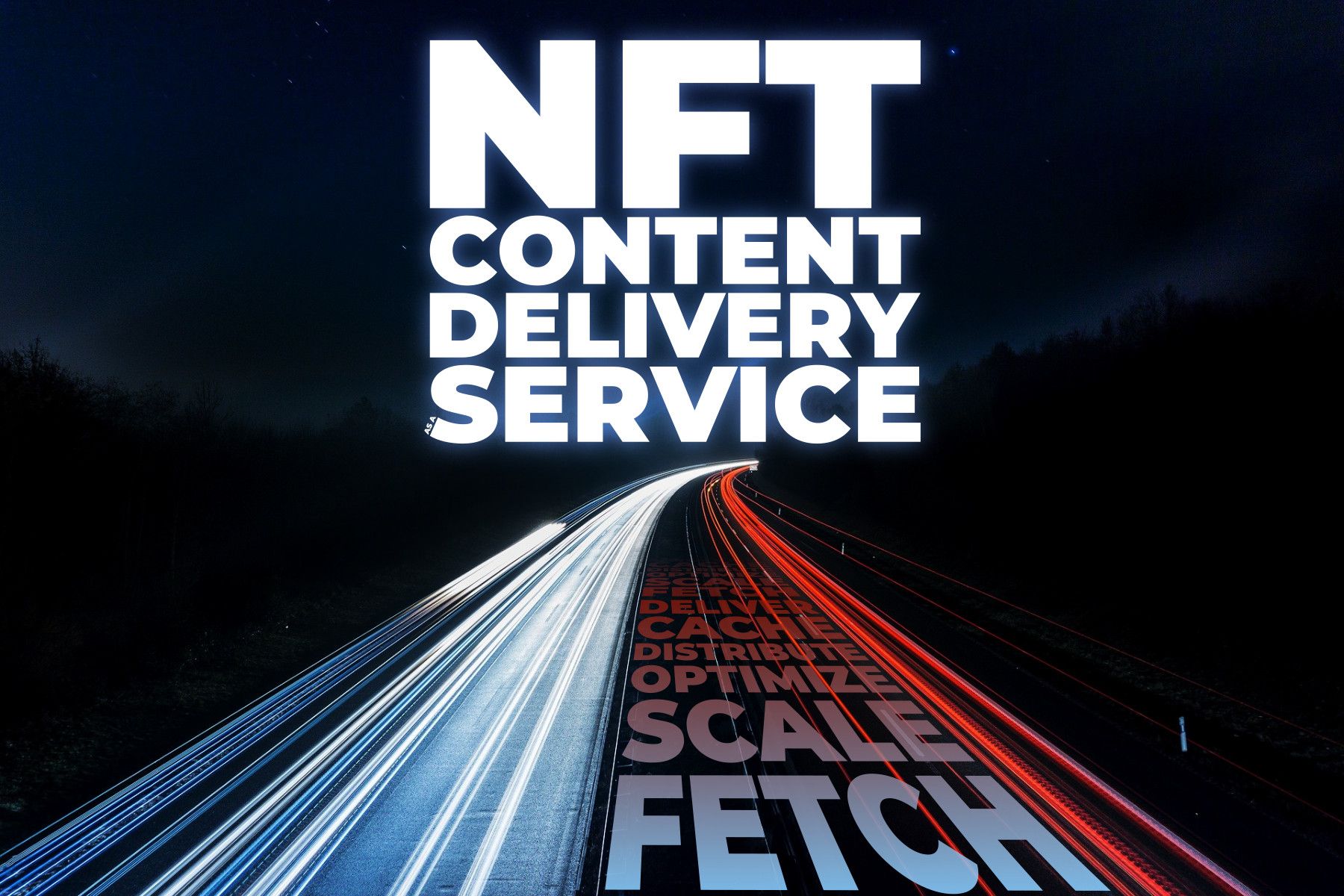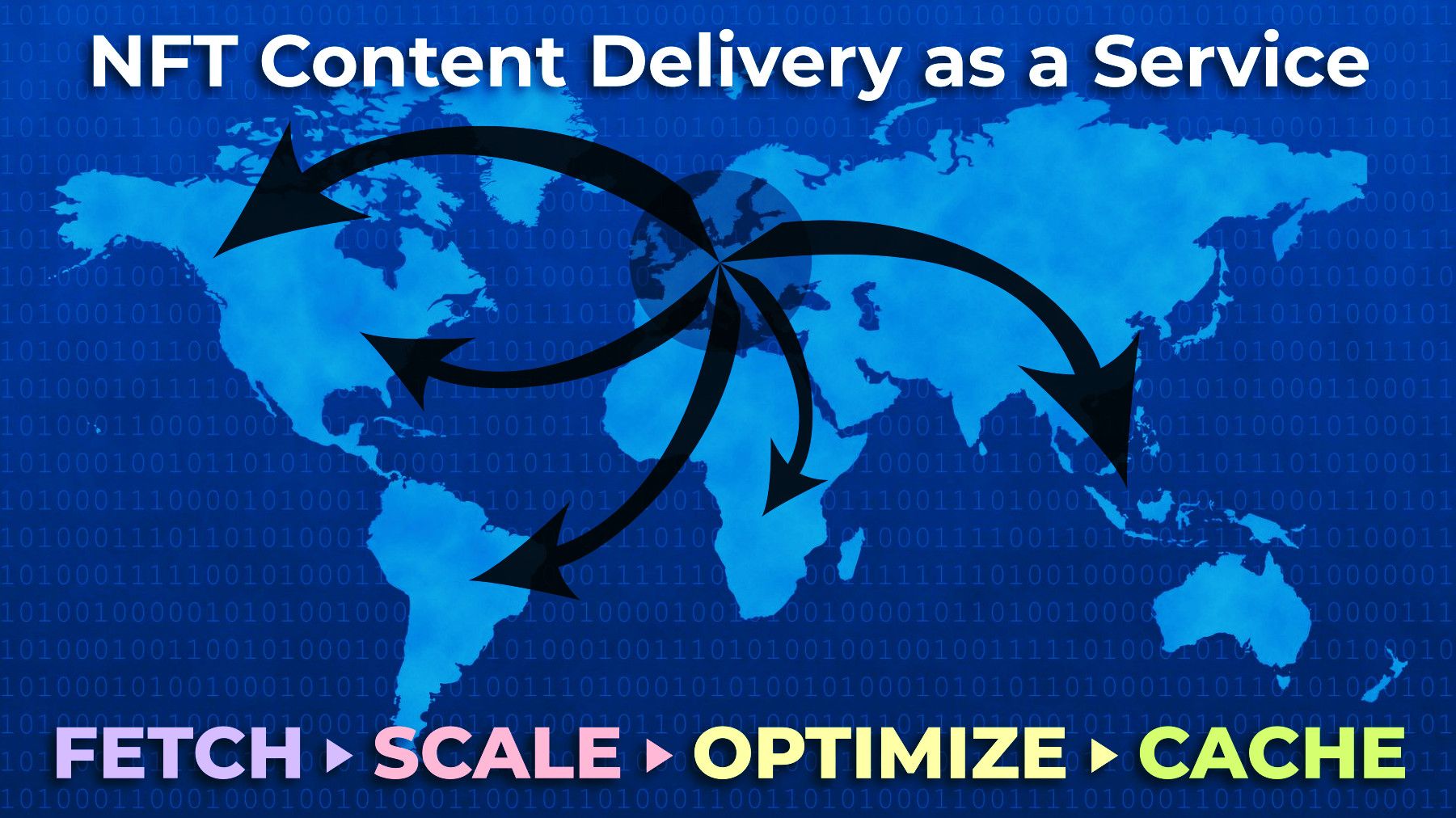
Provision of an NFT Content Delivery Service for the Cardano Community
Background
As of March 2022 over 3,654,703 million Non-Fungible Tokens ("NFTs") have been minted on the Cardano blockchain and it is growing at an average of 511,000 (+38%) NFTs per month in the last six months up to February 2022. In simple terms: NFTs are digital objects which contain "metadata" (chunks of information with labels), referenced by their unique asset ID.
The data held within an NFT is referred to as its metadata. There are no restrictions as to what can form part of the metadata, however in the Cardano ecosystem, CIP-0025 sets out the standard on how metadata should be structured and what it must contain as a bare minimum. This includes a name and an image attributed to the NFT.
The image file may be of any format (JPG, JPEG, PNG, WebP, GIF, etc) and is instructed to be uploaded and hosted on the InterPlanetary File System (IPFS), or a similar platform such as Arweave. Both technologies run on the principle of decentralised storage (not controlled by an individual or group) and permanence (cannot be deleted). Web-storage (https://) is now also an accepted solution and is conversely centralised (controlled by an individual or group) and temporary (remains available until the host removes it).
The Problem - Bandwidth Costs:
NFT image file sizes can be large (on average 4.7 MB each). This requires a substantial amount of bandwidth when multiple NFTs are being viewed. Additionally serving the NFT image files efficiently requires a Content Delivery Network ("CDN") to ensure availability and speedy delivery worldwide. A CDN is a cluster of servers strategically located around the world to provide end-users the cached (i.e. temporarily stored) file faster from the closest Point of Presence ("PoP").
An NFT Content Service Provider ("CSP") may pay up to several thousands of dollars per month. As for Blockfrost's tweet referenced above, their bandwidth expenditure of 644TB in October 2021 would have cost them $30,000 using AWS Cloudfront or $2,500 using Bunny.net (on average $30,000 annually), a very competitive CDN on the market. The impact to existing CSPs are evident and cost optimisation in this domain is critical to running a sustainable business model for the growth of CSP offerings to the Cardano ecosystem.
Additionally, new application ("app") developers who wish to display NFTs on their app will very likely be faced with a substantial cost of entry to market, inhibiting innovation within the Cardano ecosystem. And while it is true that free CDN and image optimisation services may exist, there are inherent limitations on bandwidth consumption within those pricing plans, severely constraining scaling of projects using such solutions.
Besides the cost to the CSPs, there is also a cost to the end-users who are viewing the NFT images, particularly those using mobile data. While broadband pricing is independent of bandwidth usage, most mobile data providers are not. The Worldwide Data Pricing survey shows that the average cost of 1 GB of mobile data for 34% of the African continent stands at $2/GB - $5/GB, $3.33/GB in the USA, $5.72/GB in Canada, $3.38 in Japan and $3.38 in Germany. And while most countries worldwide may charge low rates ($0.25/GB upto $2/GB), the cumulative bandwidth when viewing NFTs across various wallets will result in modest monthly bills at best, or an avoidance of one of the most engaging aspects of the Cardano ecosystem at worst.
The Problem - Infrasturcture Burden:
The cost burden of deploying, monitoring and maintaining an adequate infrastructure (both on-premise and/or cloud) that provides high-quality CDN performance will have a sizeable impact on both Capital Expenditure ("CAPEX") & Operational Expenditure ("OPEX"). Additional OPEX will need to be dedicated to a full-time developer to keep up with the ever evolving protocols and their specifications in the Cardano ecosystem (e.g. CIP-0035) and conduct supplementary research, design and development work(s) to stay ahead of the curve.
This takes away crucial time from businesses and/or app developers who should be focusing on their core value-add activities revolving around their product, consequently delaying their time to market and subsequently falling short on user-experience expectations as a result of poor performance and/or low expertise in this domain.
The Solution

We seek to build and deliver a Platform as a Service (PasS) solution that will benefit wallet developers, NFT marketplaces, DApp and app developers & end-users with capabilities such as:
- Infrastructure-less, no-code and easy-to-use API query for optimised NFT image content delivery that can be embedded within <img> HTML tags on any website or app
- On-demand re-scaling/re-sizing of IPFS, Arweave & Web (HTTPS) hosted image files
- Automatic image format optimisation while maintaining image quality
- Image caching for faster delivery through our worldwide Content Delivery Network ("CDN")
- Worldwide CDN that has geographically targeted Points of Presence ("PoP") to deliver NFT content at high speed to end-users through distributed caching
- Additional value-add outputs such as full NFT metadata
The Benefits
- Our service will benefit existing content service providers (e.g. NFT marketplaces, analytics services, etc), new DApp & app developers and end-users together
- It will reduce capital expenses by virtue of competitive pricing
- It will reduce computational burden by removing duplicated efforts across content service providers in re-scaling and optimisation across every NFT
- It will reduce operating expenses by outsourcing their infrastructure development & operational needs
- It will improve a service/product's speed to market that intends to use Cardano NFTs
- It will enable developers to focus on the value-add activities of their product(s) offerings
- It will reduce the resource and operational burden of a team/organisation
- It will provide end-users the "seamless" experience that they will love and enjoy, making Cardano a thriving ecosystem.
Foreseable Future Features
- Support other media from CIP-0025 "files" property such as Video files, Audio files, 3D Model files, HTML files, etc
- "Safe-to-open" model for NFTs with HTML files
- Video files optimisation
- Audio files optimisation
- Additional compatible file optimisation stored within metadata
- CIP-0035 (On-Chain Token Metadata Standard) media metadata support
- Other new use-cases as they develop




